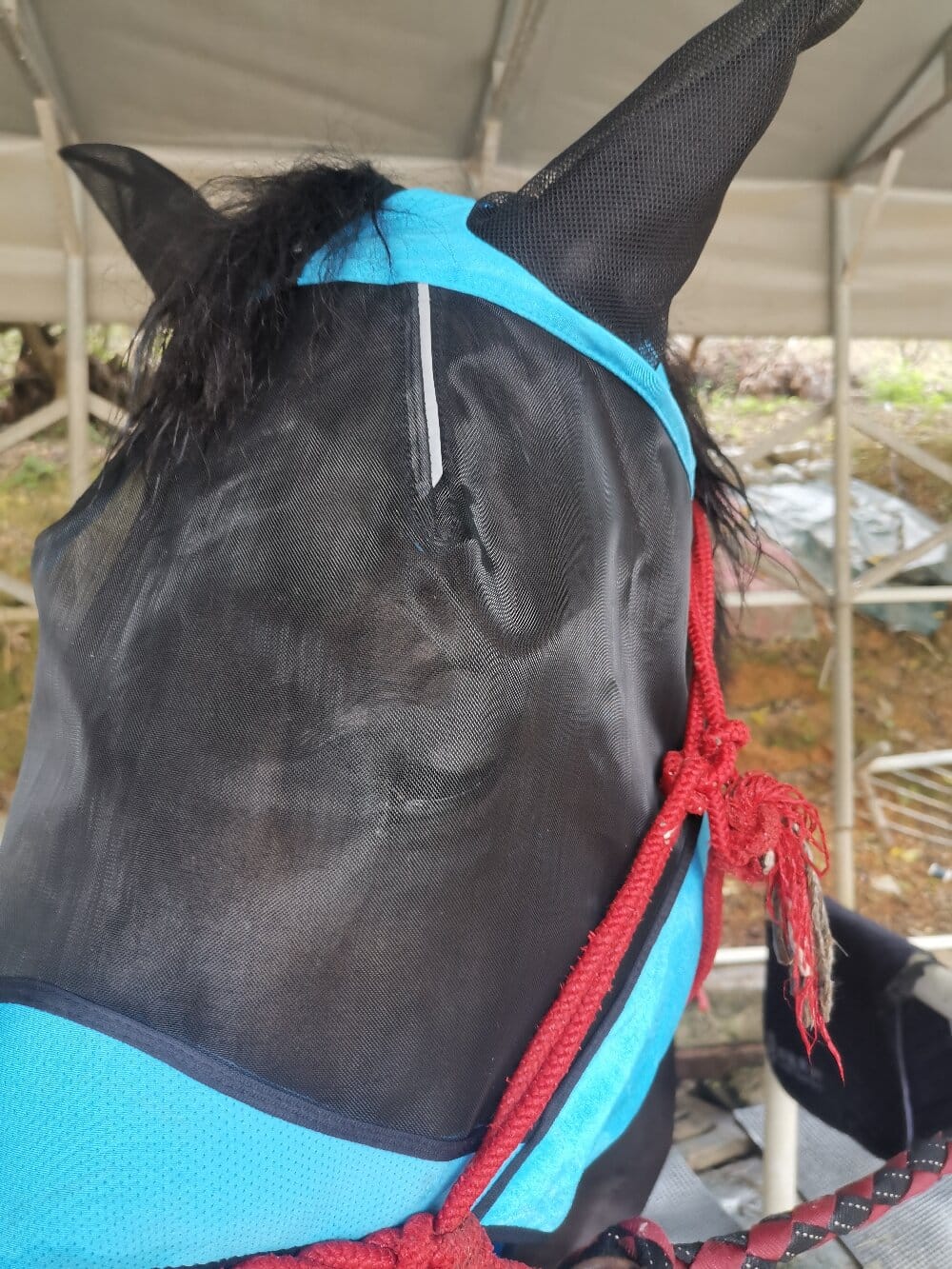As a horse owner, protecting your equine companion from pests is a top priority, and a horse fly mask is one of the most effective tools for this purpose. These specialized masks shield horses’ eyes, ears, and faces from irritating flies, mosquitoes, and UV rays, ensuring comfort and preventing infections. In this article, I’ll share industry insights on why fly masks are essential, how to choose the right one, and the benefits they offer beyond basic pest protection.
The Importance of Fly Protection for Horses
Flies aren’t just a nuisance—they can cause serious health issues for horses. Persistent biting insects can lead to:
- Skin irritations and allergic reactions
- Eye infections from constant rubbing
- Stress and reduced performance
- Spread of diseases like equine infectious anemia
A well-fitted fly mask acts as a barrier, minimizing these risks while allowing your horse to graze and move freely.
Key Features of a High-Quality Horse Fly Mask
Not all fly masks are created equal. Here’s what to look for when selecting the best option for your horse:
- Breathable Fabric: Mesh materials should allow airflow while blocking pests.
- UV Protection: Many masks offer SPF protection to prevent sunburn.
- Adjustable Fit: Straps with Velcro or elastic ensure comfort and security.
- Durability: Reinforced stitching and tear-resistant fabric extend the mask’s lifespan.
- Extended Coverage: Some designs include ear covers or nose flaps for added protection.
How a Horse Fly Mask Enhances Equine Comfort
Beyond pest control, a fly mask for horses contributes to overall well-being. Horses wearing these masks exhibit fewer stress-related behaviors, such as head shaking or stamping. They also experience:
- Reduced risk of corneal damage from flies
- Less distraction during training or competitions
- Improved grazing efficiency without constant swatting
For horses with light-sensitive eyes or conditions like uveitis, a UV-blocking mask is particularly beneficial.
Choosing the Right Fly Mask for Your Horse
Selecting the perfect mask depends on your horse’s needs and environment. Consider these factors:
- Climate: Hotter regions may require lighter, more breathable fabrics.
- Activity Level: Performance horses might need streamlined designs that won’t slip during movement.
- Special Needs: Horses with allergies or past injuries may require extra coverage.
Don’t forget to measure your horse’s head accurately to avoid gaps or tight spots that could cause discomfort.
Maintaining Your Horse’s Fly Mask
Proper care ensures longevity and hygiene. Follow these simple steps:
- Regularly rinse the mask to remove dirt and sweat.
- Hand-wash with mild soap and air-dry to preserve elasticity.
- Inspect for wear and tear, especially around straps and seams.
- Replace the mask if it becomes frayed or loses its shape.
Final Thoughts on Equine Fly Protection
Investing in a high-quality horse fly mask is a small step that makes a big difference in your horse’s health and happiness. Whether your horse spends its days in the pasture or competes in events, the right mask can prevent discomfort, reduce stress, and even lower veterinary costs. By understanding the features, benefits, and maintenance involved, you can make an informed choice that keeps your equine partner protected all season long.

